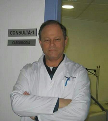Theme: Theme: Defining the Future Vision of Heart
Annual Cardiology 2023
Annual Cardiology 2023
Details of Annual Cardiology 2023 Conference in Vancouver:
|
Conference Series LLC Ltd proudly invites all the participants and sponsors across the globe to attend the “31st International Congress on Cardiology and Medical Interventions” during March 23-24, 2023
The main focus and theme of the conference is “Defining the Future Vision of Heart”. CARDIAC CONFERENCE 2023 strives to bring renowned Cardiac Surgery, Cardiovascular online visitors ranging from Researchers, Academicians and Business professionals, who are working in this field, students and Business delegates under a single roof providing an opportunity to share the knowledge and scientific progress in the field of Cardiovascular Research and Clinical Cardiology shaping the future research.
Our conference includes a well-balanced line up of speakers, covering both broad and specific topics of interest. Our aims to provide cardiac physicians, specialists, nurses, technologists and anyone professionally involved in Cardiovascular Disease with an opportunity to learn about the complexity of the disease, discuss interventional procedures, look at new and advanced cardiac practices and their efficiency and efficacy in the treatment of various cases, and understand local realities and practical constraints in improving patient-care. The ANNUAL CONFERENCE 2023 will be organized around the theme "One step forward towards the Advancements in Cardiovascular Research and Heart Diseases "
Conference Series LLC Ltd organizes 1000+Conferences Every Year across USA, Europe & Asia with support from 1000 more scientific societies and Publishes 900+Open access Journals which contains over 60000 eminent personalities, reputed scientists as editorial board.
The Cardiovascular Research conference interrelates with members across the globe focused on learning about Global Cardiac and Heart Regeneration. This is the sole best opportunity to reach the major participants. Sharing the knowledge and demonstrations, information and B2B meetings with industrialists and potential clients to make a splash with innovative products live and brand recognition at this event. World prominent speakers, the most recent techniques, and the cutting-edge updates in Cardiovascular Medicine and Cardiac Surgery are hallmarks of this conference.
ANNUAL CARIOLOGY 2023 will join world-class teachers, scientists, Surgeons and cardiologists to discuss methodology for ailment remediation for heart, Thoracic region, Electrocardiography, Cardiac Pharmacology, Nuclear Diabetes & Obesity.
Track 1: Paediatric Cardiology
The Division of Paediatric Cardiology is responsible for the diagnosis of congenital heart defects, performing diagnostic procedures such as echocardiograms, cardiac catheterizations, and electrophysiology studies, and for the on-going management of the sequel of heart disease in infants, children and adolescents. The various inflammatory heart diseases include Myocarditis, Kawasaki disease is a rare childhood illness that affects the blood vessels. There are also other pericardial diseases that can present clinically as acute pericarditis, pericardial effusion, cardiac tamponade, and constrictive pericarditis. Infective endocarditis is a form of endocarditis. It is an inflammation of the inner tissues of the heart. These are the main inflammatory defects for Babies Heart.
- Cardiac Malformation
- Congenital Abnormalities
- Hypo plastic Left Heart Syndromes
- Auditory Stimulation Therapy
- Myocarditis
Clinical cardiology is a part of the remedial distinguishing strength of cardiology and is stressed over the examination and treatment of the rhythm of the heart. Electro physiologists work personally with various cardiologists and cardiovascular experts to help or guide treatment for heartbeat aggravations. Molecular Cardiology is the examination of a genetic heart issue and to decrease human disease through the fuse of basic science investigate and clinical cardiology. This asks about program furthermore consolidate the association between environmental segments, metabolic infirmity and less than ideal cardiovascular developing. These objectives are characterized by a translational methodology anticipated that would depict cardiovascular disease phenotypes through novel developments, genetically planned animal models and human examinations.
- Gene Analysis in the Diseased Hearta
- Transgenic techniques in cardiac research
- Medical genetics
- Integrin and chemokine receptors in heart physiology & cardiovascular disease
- Parabiosis and gene therapy
Cardiac surgery, or cardiovascular surgery, is surgery performed on the heart or blood vessels by cardiac surgeons. It is often used to treat complications of ischemic heart diseases like coronary artery bypass grafting, to correct congenital heart disease; or to treat valvular heart disease from various causes, including endocarditis, rheumatic heart disease, and atherosclerosis. It also includes heart transplantation.
- Minimally Invasive Coronary Artery Bypass Surgery
- Valve-Sparing Aortic Root Replacement
- Open heart surgery
- Trans myocardial Laser Revascularization
- Off-Pump Heart Surgery
Track 4: Cardiovascular Diseases
Cardiology Conferences promotes awareness against Risk factor modification about the heart diseases. The most comprehensive provider of cardiovascular services in the prevention, detection, management and treatment of the cardiovascular diseases. This annual cardiology meeting is a platform for postgraduate education and scientific work in the fields of cardiology, angiology, hypertension and cardiac and vascular surgery. It reduces clinical events and premature death in people with cardiovascular disease risk. Cardiovascular disease is treatable with initial treatment primarily focused on diet and lifestyle interventions. The medical meeting focuses on the treatment of diseases and new theories of diagnosis of the blood vessels and the vascular system or heart.
- Pericarditis
- Thrombosis and Pulmonary Embolism
- Coronary Artery Diseases
- Rheumatic Heart Diseases
- Venous Thrombosis
Track 5: Hypertension & Stroke
Hypertension is a long term therapeutic condition in which the blood pressure in the arteries is elevated. Hypertension does not have any symptoms. Long term high BP can lead to many heart diseases like coronary artery disease, heart failure, stroke, vision disease etc. The two types of hypertension are:
Primary Hypertension: Unknown cause; Secondary Hypertension: Lifestyle changes
Blood pressure is measured in systolic and diastolic pressure. The normal blood pressure is 120/80 mmHg, at rest.
A stroke occurs when blood flow to an area in the brain is cut off and people who have hypertension are four to six times more likely to have a stroke. Stay safe: Learn your risk factors and the warning signs of stroke and what to do in a stroke emergency. ‘Conference series LLC Ltd teams with CED, a Joint Accreditation Provider, as Joint Providers of CME Credits for the Cardiology Meetings consisting of physicians, cardiologists, cardiac surgeons, scientists, professors and young researchers’
- Perioperative management in hypertension
- Heart Failure
- Erectile dysfunction
- Systolic/Diastolic malfunction
- Secondary hypertension
- Genetic factors of hypertension
- Life style of high blood pressure
Diabetic Heart Disease (DHD) refers to a coronary illness that creates in individuals with diabetes. Individuals with diabetes will probably have certain conditions, or hazard factors, that expansion the odds of having coronary disease or stroke, for example, hypertension or elevated cholesterol. Weight is another significant purpose for heart sicknesses. This is a chronic metabolic disorder related to cardiovascular disease and expanded dismalness and mortality. It expands the hazard for coronary disease and stroke. Be that as it may, it hurts something beyond the heart and circulatory system. Obesity also causes health issues like gallstones, osteoarthritis, and respiratory issues. Notwithstanding weight gain is a successive result of heart-harming way of life decisions, for example, lack of exercise & a fat-loaded diet.
- Diabetes Mellitus and Stroke
- Abdominal Obesity
- Metabolic syndrome
- Vascular dementia
- Weight Control
- Apnea
- Obesity and its Complications
Cardiovascular pharmacology deals with the medication of cardiac diseases. The Cardiac Drugs are used to treat conditions of the related to heart or the circulatory or vascular biology Many categories of cardiovascular agents are available to treat the various cardiovascular conditions. The most commonly used sub-category drugs include Sodium, potassium, calcium channel blockers, ACE-inhibitors and Cardiac biomarkers. There are mainly 6 associations and societies and the main association for Cardiac Therapeutic Agents in USA. 50 universities are working on Cardiac Therapeutic Agents. Recently three new drugs were introduced in 2015. There are many types of cardiovascular drugs in the market that include Cardiac glycosides, anti-coagulants, anti-arrhythmic agents, anti-anginal agents and anti-hypertensive agents.
- Drug-Induced Cardiac Toxicity
- Novel Anti-Inflammatory Therapies for Atherosclerosis
- Development of Novel Anti-Ischemic Agents
- Beta Blockers Blocking
- Cardiac Glycoside
Track 8: Cardiac & Cardiovascular Research
Cardiovascular diseases are a group of disorders of the heart diagnosis and blood vessels. Cardiovascular disease includes coronary artery diseases (CAD) such as angina and myocardial infarction (commonly known as a heart attack). Other related diseases include stroke, heart failure, hypertension heart disease, rheumatic heart disease, cardiomyopathy, heart arrhythmia, congenital heart disease, valvular heart disease, Cardiac pharmacology, aortic aneurysms, peripheral artery disease, thrombo-embolic disease, and venous thrombosis.
The most common reason for this is a build-up of fatty deposits on the inner walls of the blood vessels that supply the heart or brain. Strokes can also be caused by bleeding from a blood vessel in the brain or from blood clots.
- Pericarditis
- Valvular Heart Diseases
- Thrombosis and Pulmonary Embolism
- Coronary Artery Diseases
- Congenital Heart Defect
- Venous Thrombosis
Men and women are very different when it comes to matters of the heart, and that’s just as true for matters of heart health. While heart disease is on the decline among men, it is continuously rising among women. It’s the number one killer of women over 35 worldwide, accounting for more deaths every year than all cancers combined. Women with diabetes generally have higher CVD mortality rates than men with diabetes. Women engaged in physical activity for less than an hour per week have 1.48 times the risk of developing coronary heart disease, comparing to the women who do more than three hours of physical activity per week. Go Red for Women is a major international awareness campaign that is dedicated to the prevention, diagnosis and control of heart disease and stroke in women.
- Heart attack symptoms for women
- Heart disease risk factors for women
- Prevention, diagnosis & treatment
- Antiarrhythmic agents
Echocardiography is a painless test that uses sound waves to create moving pictures of your heart. The pictures show the size and shape of your heart. They also show how well your heart's chambers and valves are working. Echo also can pinpoint areas of heart muscle that aren't contracting and working because of poor blood flow or injury from a previous heart attack. A type of echo called Doppler ultrasound shows how well blood flows through your heart's chambers and valves.
Echo can detect possible blood clots inside the heart, fluid build-up in the pericardium, and problems with the aorta. The aorta is the main artery that carries oxygen-rich blood from your heart to your body. Doctors also use echo to detect heart problems in infants and children.
- Transthoracic echocardiography
- Transoesophageal echocardiography
- Contrast echocardiography
- Lung ultrasound examination
Track 11: Cardiac and Heart Regeneration
Cardiac regeneration is a broad effort that aims to repair irreversibly damaged heart tissue with cutting-edge science, including stem cell and cell-free therapy. Reparative tools have been engineered to restore damaged heart tissue and function using the body's natural ability to regenerate. During a typical myocardial infarction or heart attack, an estimated one billion cardiac cells are lost. The scarring that results is then responsible for greatly increasing the risk of life-threatening abnormal heart rhythms or arrhythmias. Therefore, the ability to naturally regenerate the heart would have an enormous impact of modern healthcare. ‘Conference series LLC Ltd teams with CED, a Joint Accreditation Provider, as Joint Providers of CME Credits for the Cardiology Meetings consisting of physicians, cardiologists, cardiac surgeons, scientists, professors and young researchers’
Track 12: Clinical Case Reports on Cardiology
A case report on Cardiology gives an appropriate convention for all cardiologists by rendering their important clinical cases of late occurrence. Studying from medical cases provides valuable experience for clinicians, students and paramedical staff -members. Rare medical reports and conditions discovered through the latest methods of examination are energized. Moreover, studying diagnostic methods from medical cases and the interpretation of symptoms is significant to train and burgeon the thought processes which are being used in the clinical field. ‘Conference series LLC Ltd teams with CED, a Joint Accreditation Provider, as Joint Providers of CME Credits for the Cardiology Meetings consisting of physicians, cardiologists, cardiac surgeons, scientists, professors and young researchers’
Track 13: Cardiology - Future Medicine
A cardiologist is a doctor who specializes in the studies of heart & its functions & also diagnosis, treatment and preventing diseases related to heart and blood vessels. You might also visit a cardiologist, so you can learn about your risk factors for heart disease and find out what measures you can take for better heart health. Cardiology – Future medicine is a field which is changing rapidly, new technologies as drug-eluting stents, assist devices for left ventricle, and novel inflammatory markers, and imaging modalities such as magnetic resonance imaging and 3D echocardiography.
- General clinical cardiologists
- Pediatric cardiologists
- Cardiovascular Anesthesiology
- Cardiovascular Pathology Research
- Preventive cardiologists
Atherosclerosis is a disease in which plaque builds up inside your arteries. Arteries are blood vessels that carry oxygen-rich blood to your heart and other parts of your body. Plaque is made up of fat, cholesterol, calcium, and other substances found in the blood. Over time, plaque hardens and narrows your arteries. This limits the flow of oxygen-rich blood to your organs and other parts of your body. Atherosclerosis can lead to serious problems, including heart attack, stroke, or even death. The Artery-wall thickens as a result of invasion and accumulation of white blood cells (WBCs) (foam cell) and proliferation of intimal-smooth-muscle cell creating an atheromatous (fibrofatty) plaque. Plaque creates a bump on the artery wall. As atherosclerosis progresses, that bump gets bigger. When it gets big enough, it can create a blockage. That process goes on throughout your entire body. As a result, not only is your heart at risk, but you are also at risk for stroke and other health problems. Atherosclerosis usually doesn’t cause symptoms until middle or older age. But as the narrowing becomes severe, it can choke off blood flow and cause pain. Blockages can also rupture suddenly. That’ll cause blood to clot inside an artery at the site of the rupture. ‘Conference series LLC Ltd teams with CED, a Joint Accreditation Provider, as Joint Providers of CME Credits for the Cardiology Meetings consisting of physicians, cardiologists, cardiac surgeons, scientists, professors and young researchers’
Sports Cardiology is related with the cardiovascular care of athletes and exercise cardiology is related to the individuals of all the age groups. Sports cardiology also includes the heart screening which helps to detect serious cardiovascular issues in young athletes. The main reason for death in exercising young athletes is Sudden Cardiac Arrest. This is activated by a malignant tachyarrhythmia, for example, ventricular fibrillation (VF) or ventricular tachycardia deteriorating into VF. Cardiologists confront various difficulties in assessing the athletes because of complex individual cardiovascular demand and adaptations forced by exercise. The main aim of the Sports Cardiology Center is to work with any athlete forward the range - proficient athlete, recreational exercisers, to end of the week warriors to enable them to achieve these goals.
- Cardiovascular epidemiology & population science
- Improving ECG interpretation in athletes
- Circadian rhythm
- Cardiovascular assessment
- Sports and cardiovascular disease Patient-centered counselling
- Cardiac exercise science
- Exercise stress testing
- Sudden cardiac death in sports
Track 16: Women and Cardiac Arrhythmia
Heart disease is the No. 1 killer of women, causing 1 in 3 deaths each year. That’s approximately one woman every minute. There are several misconceptions about heart disease in women, and they could be putting you at risk. Other types of heart disease, such as coronary micro vascular disease (MVD) and broken heart syndrome, also pose a risk for women. These disorders, which mainly affect women, are not as well understood as CHD. ‘Conference series LLC Ltd teams with CED, a Joint Accreditation Provider, as Joint Providers of CME Credits for the Cardiology Meetings consisting of physicians, cardiologists, cardiac surgeons, scientists, professors and young researchers’
Track 17: Heart Diseases & Heart Failure
The term heart disease is often used interchangeably with the term "cardiovascular disease." Cardiovascular disease generally refers to conditions that involve narrowed or blocked blood vessels that can lead to a heart attack, chest pain (angina) or stroke. Other heart conditions, such as those that affect your heart's muscle, valves or rhythm, also are considered forms of heart disease.
Heart failure, sometimes known as congestive heart failure, occurs when your heart muscle doesn't pump blood as well as it should. Certain conditions, such as narrowed arteries in your heart (coronary artery disease) or high blood pressure, gradually leave your heart too weak or stiff to fill and pump efficiently. In some people with heart failure, the heart has difficulty pumping enough blood to support other organs in the body. Other people may have a hardening and stiffening of the heart muscle itself, which blocks or reduces blood flow to the heart. Heart failure can affect the right or left side of your heart, or both at the same time. It can be either an acute (short-term) or chronic (on-going) condition. ‘Conference series LLC Ltd teams with CED, a Joint Accreditation Provider, as Joint Providers of CME Credits for the Cardiology Meetings consisting of physicians, cardiologists, cardiac surgeons, scientists, professors and young researchers’
Heart rhythm problems (heart arrhythmias) occur when the electrical impulses that co-ordinate your heartbeats don't work properly, causing your heart to beat too fast, too slow or irregularly. Heart arrhythmias (uh-RITH-me-uhs) may feel like a fluttering or racing heart and may be harmless. However, some heart arrhythmias may cause bothersome sometimes even life-threatening signs and symptoms. Heart arrhythmia treatment can often control or eliminate fast, slow or irregular heartbeats. In addition, because troublesome heart arrhythmias are often made worse or are even caused by a weak or damaged heart, you may be able to reduce your arrhythmia risk by adopting a heart-healthy lifestyle.
Many things can lead to, or cause, an arrhythmia, including:
- A heart attack that's occurring right now
- Scarring of heart tissue from a prior heart attack
- Changes to your heart's structure, such as from cardiomyopathy
- Blocked arteries in your heart (coronary artery disease)
- High blood pressure
- Overactive thyroid gland (hyperthyroidism)
- Underactive thyroid gland (hypothyroidism)
- Smoking
- Drinking too much alcohol or caffeine
- Drug abuse
- Stress
- Certain medications and supplements, including over-the-counter cold and allergy drugs and nutritional supplements
- Diabetes
- Sleep apnea
- Genetics
Track 19. Congestive Heart Failure
Congestive heart failure (CHF) is a chronic progressive condition that affects the pumping power of your heart muscles. While often referred to simply as “heart failure,” CHF specifically refers to the stage in which fluid builds up around the heart and causes it to pump inefficiently.
You have four heart chambers. The upper half of your heart has two atria, and the lower half of your heart has two ventricles. The ventricles pump blood to your body’s organs and tissues, and the atria receive blood from your body as it circulates back from the rest of your body.
CHF develops when your ventricles can’t pump enough blood volume to the body. Eventually, blood and other fluids can back up inside your:
- lungs
- abdomen
- liver
- lower body
CHF can be life-threatening. If you suspect you or someone near you has CHF, seek immediate medical treatment.
Global Market of Interventional Cardiology Shared by Country
The international market for interventional cardiology applied sciences reached an estimated $12.2 billion in 2014. According to a new study by means of Smithers Apex – The Future of Coronary Artery Disease Medical Devices to 2021 – it will develop to $22.5 billion (€20.9 billion) by way of 2021, with a year-on-year increase of 9.1%.Demand for coronary artery sickness medical devices will develop thru 2021 as clinically potential and budget friendly solutions are developed. The record covers three important segments of cardiology surgery, units and capsules market which consists of surgeries, devices and drugs. Cardiovascular illnesses are the wide variety one cause of dying globally. Some of the fundamental CVDs consist of coronary heart diseases, , stroke, hypertensive coronary heart diseases, inflammatory coronary heart diseases, rheumatoid coronary heart ailments and others. Coronary heart illnesses are the main purpose of loss of life observed via strokes. The incidence and incidence price of heart ailments are on a rise; particularly in foremost rising nations such as India, China and Japan. The market of cardiology surgery, gadgets and pills are also on a rise.
- Interventional Cardiology Market
Canada has a publicly funded health insurance plan system, so-called “Medicare”, which is financed thru taxes, prices and, in some provinces, month-to-month premiums. Every province and territory has its own health insurance plan diagram and its personal specific regulations. Generally, the public healthcare device ensures primary clinical care for all citizens. Additional treatments, such as dental care, prescription medication, and optician check-ups, have to be paid for through the patient. Many Canadian employers offer their personnel extra healthcare coverage, for example, prescription drugs, physiotherapy, and chiropractic treatment.
- Interventional Cardiology Revenue
The global medicinal drug market consists of interventional, internal organ devices. The worldwide interventional medicinal drug gadgets market has been predicted to apprehend $25.16 billion by using 2021. On the opposite hand, the Asia Pacific market is anticipated to travel on top of $6.4 billion via 2021, developing at a profitable price over the forecast amount.
The international marketplace for vas surgical gadgets employed in the health center room was once valued concerning $31 billion in 2015. By 2018, this market ranged surely $48 billion at a CAGR of 8.7%. By 2019, it is calculable to be triumphant in value of $70. the enlargement is attributed to the presence of sizeable preliminary opportunities, rising tending expense, sickness incidence rate, and earnings levels. North America interventional remedy units market was once the biggest with revenue share calculable at over 35.0% in 2021.
Conference Highlights
- Paediatric Cardiology
- Clinical Cardiology
- Cardiac Surgery
- Cardiovascular Diseases
- Hypertension & Stroke
- Diabetes & Obesity
- Cardiac Pharmacology
- Cardiac & Cardiovascular Research
- Women Heart Health
- Echocardiography
- Cardiac and Heart Regeneration
- Clinical Case Reports on Cardiology
- Cardiology - Future Medicine
- Atherosclerosis
- Sports Cardiology
- Women and Cardiac Arrhythmia
- Heart Diseases & Heart Failure
- Heart Rhythm
- Congestive Heart Failure
To share your views and research, please click here to register for the Conference.
To Collaborate Scientific Professionals around the World
| Conference Date | March 23-24, 2023 | ||
| Sponsors & Exhibitors |
|
||
| Speaker Opportunity Closed | |||
| Poster Opportunity Closed | Click Here to View | ||
Useful Links
Special Issues
All accepted abstracts will be published in respective Our International Journals.
Abstracts will be provided with Digital Object Identifier by














